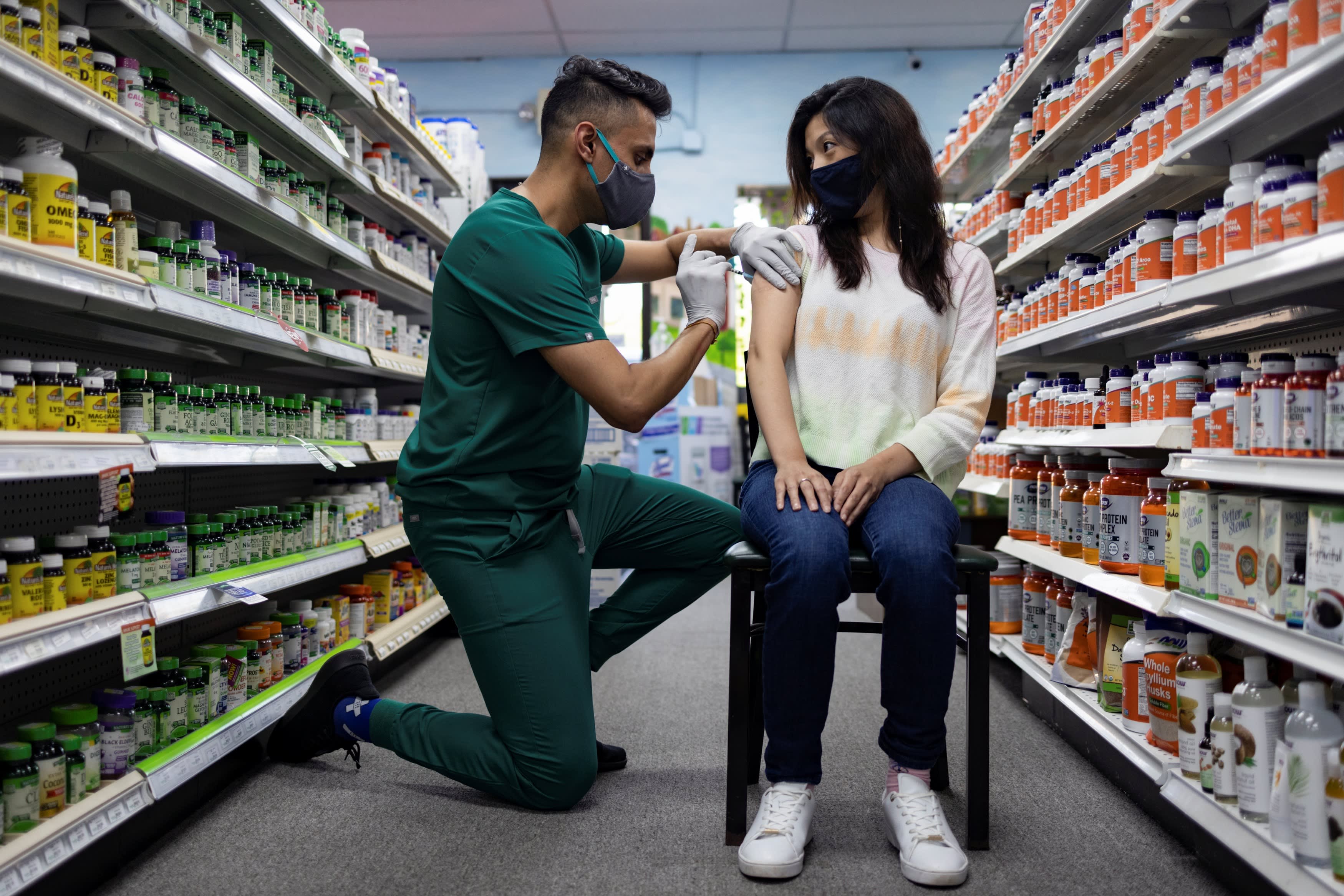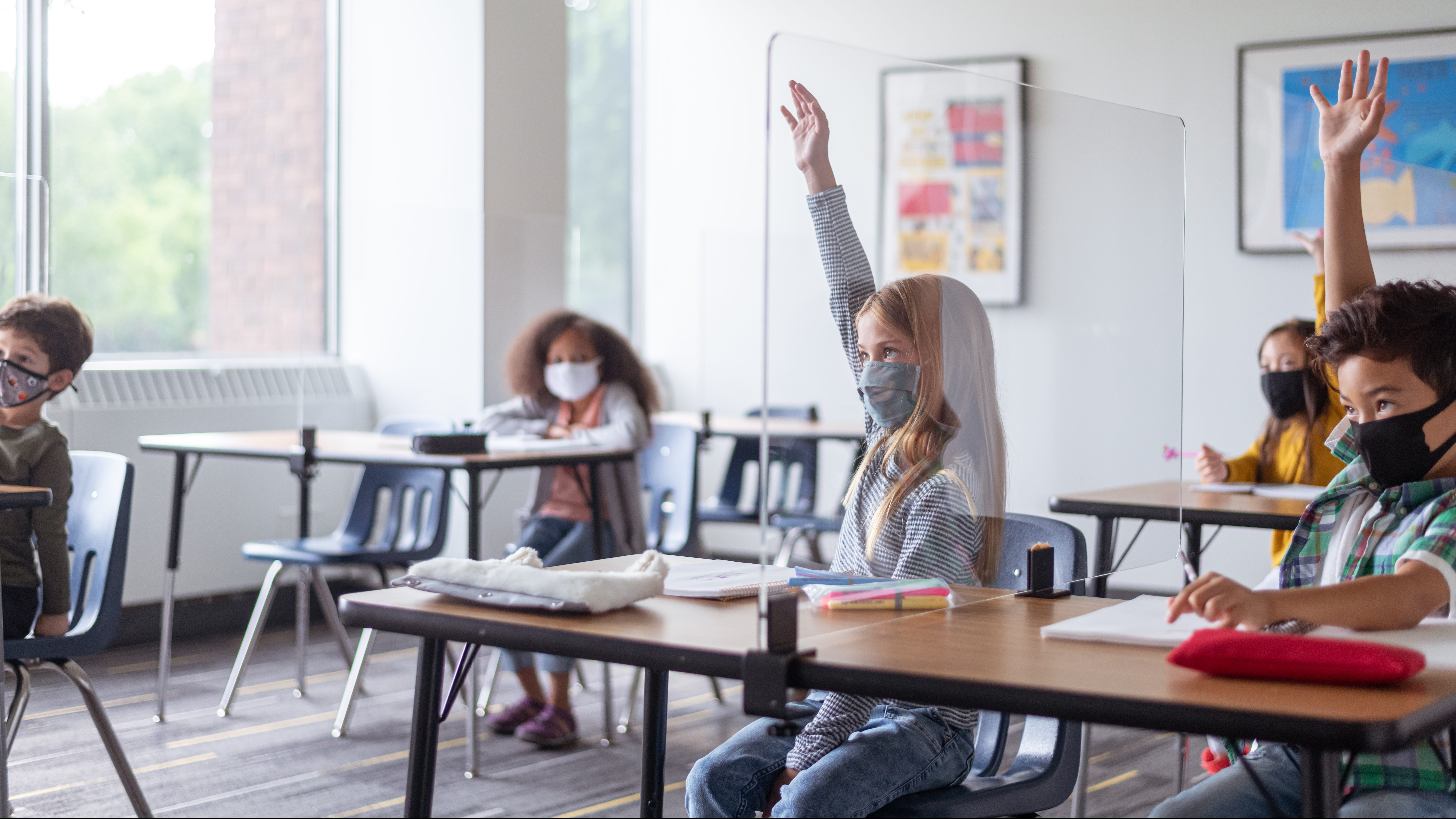A panel of doctors was called to fact-check claims about COVID-19 made during this week's San Diego County Board of Supervisors meeting, and they debunked claims from how the vaccine impacts pregnant women to how natural immunity works.
The panel was called after fiery public comment sessions at previous board of supervisors meetings that were filled with misinformation about COVID-19, which the county has declared a public health crisis.
Here are some of their responses to claims made at Tuesday's San Diego County Board of Supervisor's meeting.
Get top local stories in San Diego delivered to you every morning. >Sign up for NBC San Diego's News Headlines newsletter.
To watch the full panel discussion, click here.
Claim: Natural immunity is better against the Delta Variant
Answer from Dr. Christian Ramers, Family Health Centers of San Diego: What we’re actually seeing is natural immunity not working as well as vaccine-related immunity. In fact, it’s twice as common to get reinfection after being naturally infected than from those who are vaccinated.
Natural immunity didn’t help the people that died of COVID much. So on the first pass through, we actually have one to two people actually dying of COVID, another 30% getting long COVID and natural immunity really doesn’t help those people.
What the CDC has to say: A CDC study released in August 2021 found that unvaccinated individuals are more than twice as likely to be reinfected with COVID-19 than those who were fully vaccinated after initially contracting the virus.
Claim: COVID-19 doesn't impact children
Answer from Dr. Mark Sawyer, Rady Children's Hospital: To say that it doesn’t cause serious illness [in children] is also not correct. It causes more deaths than we see every year from influenza.
At Rady Children's hospital, there are children in the ICU with COVID-19. San Diego has not seen any deaths among children, but there have been more than 400 COVID-19 deaths among children across the nation.
It is not true that the vaccine causes more injury in children than it does prevent illness.
What the CDC has to say: The CDC says COVID-19 can cause severe illness in children and adolescents. A recent report said weekly COVID-19–associated hospitalization rates among children and adolescents rose nearly five-fold during late June–mid-August 2021.
Claim: The vaccines should not be given to pregnant people or those trying to get pregnant
Answer from Dr. Cynthia Gyamfi-Bannerman, UC San Diego Health: We now have ample data on the safety of the COVID vaccine in pregnancy and there are benefits to getting the vaccine while pregnant for your child.
Vaccine-generated antibodies were found in the umbilical cord blood and the breast milk of pregnant people, meaning that they can actually transfer immunity to their newborns.
It’s actually one of the few things you can do to protect your newborn from COVID.
If you are pregnant and you get COVID, you are more likely to get very sick compared to someone who is not pregnant, who also gets COVID.
The rates of miscarriage, stillbirth, preterm birth and all of the adverse pregnancy outcomes they looked at were not different if you were vaccinated compared to the historic numbers of what these are expected to be.
This, in fact, is killing pregnant women and there is absolutely no reason that I can think of that a pregnant person should not be vaccinated.
What the CDC has to say: The CDC echoes what Dr. Gyamfi-Bannerman says: Pregnant and recently pregnant people are more likely to get severely ill with COVID-19 compared with non-pregnant people and should be vaccinated. Read all the information the CDC has released on the vaccine and pregnancy here.
Claim: The vaccines are hurting people more than the virus is
Answer from Dr. Sawyer: People who say we don’t know what this vaccine causes, or [that] the vaccine hasn’t been studied enough, are not taking into account that we have given these vaccines to over 200 million people in the United States. And, in fact, if you look worldwide at all of the COVID vaccines that are out there, there have been over 6 billion -- billion with a B -- people immunized with COVID vaccines.
Yes, the vaccine does have side effects, but the side effects are minor, they go away in a couple of days.
Somewhere between hundreds and thousands of hospitalizations and deaths have been prevented by using the vaccine for every single case of these serious side effects. So you are much better off getting the vaccine than not, even considering these serious side effects.
There is also no evidence that the vaccine has any effects on fertility, sperm count or causes changes in menstrual cycles.
What the CDC has to say: Extreme side effects from the vaccines are extremely unlikely. Here's what the CDC lists as possible side effects, which are normal.
Claim: The vaccines are not approved by the FDA
Answer from Dr. Sawyer: Just a month or so ago, the FDA did formally approve the Pfizer vaccine down to 16 years of age, just like it does every other vaccine. Other vaccines are still under emergency use authorization from the FDA, but Pfizer is fully approved.
What the CDC has to say: The Pfizer COVID-19 vaccine was given full FDA approval on Aug. 23. For those under emergency use authorization, the FDA has regulatory processes in place to facilitate the development of COVID-19 vaccines that meet the FDA's rigorous scientific standards. Here is how a vaccine goes through the emergency use authorization process and FAQs about the process.
Claim: Masks don't work to prevent COVID transmission
Answer from Dr. Ramers: The literature is overwhelmingly in support of masks working. Of course, there are different types of masks, and different types of masks work better.
Hundreds of thousands and millions of health care workers are wearing masks, really, and have worn masks for 8 to 12 hours a day, including myself over the last two years. And the vast majority of people don’t have allergic or infectious reactions to masks. If somebody does, then I would say find a different mask and worry about the hygiene that comes with that particular mask.
What the CDC has to say: Masks are primarily intended to reduce the emission of virus-laden droplets which is especially relevant for asymptomatic or presymptomatic infected wearers who feel well and may be unaware of their infectiousness to others. Masks also help reduce inhalation of these droplets by the wearer. Here, they detail their research.




